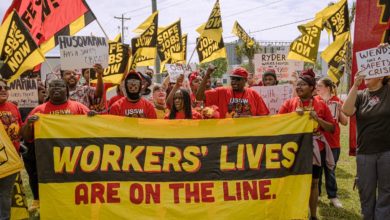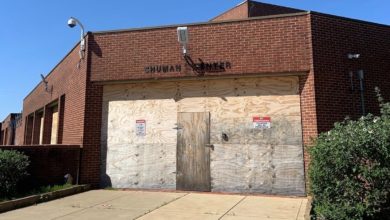A “for-profit”
prison developer and a county attorney bribed two Pennsylvania judges
$2.9 million to help build and then push youths into their prisons in
what has been called the largest judicial corruption scandal in U.S.
history. The judges used their position and influence to eliminate
the developers’ competition: the existing, county-run detention
facilities. They then helped the developers get two new, privately
owned detention centers built in their area.
In 2011, Luzerne
County judges Mark Ciavarella and Michael Conahan pled guilty to
fraud and tax evasion. Ciavarella was sentenced to 28 years on August
11. Conahan awaits sentencing.
Ciavarella’s
attorneys are appealing his sentence on the grounds it is
“excessively long” compared to national averages. This is ironic,
considering Judge Ciavarella earned a reputation as “Mr. Zero
Tolerance” for sentencing defendants two and a half times more
often than other judges in his state. Ciavarella’s sentences were
longer and more harsh than those imposed by other judges. He also
sent prisoners to the same “for-profit” detention centers he and
Judge Conahan helped build.
Under a just
system, the two judges and their co-conspirators would have been held
accountable for the false and unnecessary imprisonment of thousands.
Instead, they were charged with tax evasion and fraud.
From 2003 to
2008, Ciavarella heard 6,500 cases. Fifty percent of those cases
appeared before him without an attorney—defendants were often
pressured into waiving their right to legal counsel without being
informed of the consequences. In spite of repeated petitions and
requests, both the state of Pennsylvania and its judicial review
board refused to act. Finally in 2009, due to the persistence and
pressure of affected families and community members, the case
received wider national attention. The Pennsylvania Supreme Court
still had to be pressured into deeming the case a “travesty of
justice” and overturn thousands of Ciavarella’s convictions.
Ciavarella was
Luzerne County’s juvenile court judge. The children he sentenced
were as young as 10 years old and were taken away in handcuffs for
what were minor, misdemeanor offenses. Some were imprisoned with no
evidence of any crime committed at all: a 13-year-old mocked her vice
principal on MySpace; another 13-year-old failed to testify against a
classmate; a 14-year-old slapped her friend; and a 15-year-old’s
note was used to keep her detained indefinitely.
Ciavarella’s
courtroom has been compared to an assembly line, in which he spent
but a minute or two on each young person appearing before him.
“The whole
thing lasted about 30 seconds,” said Hillary Transue, after
receiving a three-month sentence. Once detained, she was only allowed
to speak to her family for eight minutes a week. One father, after
having his young son taken out of school in handcuffs, commented,
“Ciavarella sold kids like they were cattle, Black or white, it
didn’t matter.”
Ciavarella used
his position as judge to impose long sentences on youth in order to
keep the privately
run detention centers he personally profited
from continuously filled to capacity. The owners of these
“for-profit” facilities then billed the county based on their
number of full beds. They operated for years at full occupancy and
kicked money back to the two judges in return.
The U.S. prison
system is brutally anti-worker when run by the federal government.
The capitalist system’s inherent drive for profit, however, pushes
capitalists to look for ever more ways to increase their rate of
profit. In this, and other instances, they have found ways to further
monetize jails, making them even worse for working people in the
process.
Privately
run prisons have exploited California’s
notorious “3 strikes” laws, which sent repeat offenders away for
life. The resulting over-crowding required the state to “outsource”
excess prisoners. As states’ anti-immigration laws became more
punitive, jails became further over-crowded. As a result, imprisoned,
undocumented workers were added to the list of those farmed out to
privately run facilities. One result has been a “building boom”
of privately
owned prisons.
More often than
not, individuals like Ciavarella and Conahan are protected and
rewarded by a system that values profit first and foremost, and puts
“meeting people’s needs” dead last, if at all.
Lawyers representing the families of
Ciavarella’s victims hope his sentencing this month will “restore
their trust in the rule of law.” If the judges were an anomaly in a
system that otherwise operates fairly, that would be possible. The
U.S. justice system is, at its heart, corrupt because it serves the
interests of the small class of owners over those of the vast
majority of working people.
Ciavarella does not represent that one,
rare, “rogue” judge; he accurately represents capitalist values.
His actions are the inevitable result of a system that rewards the
constant exploitation of working and oppressed people. It is time to
abolish that system and replace it with one that puts human needs
first.






